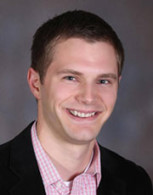By Pastor Stephen Hess –
Christians in the United States have become increasingly aware that they are living in a rapidly changing and divided culture. It is rapidly changing in that many of the religious and moral values that were prevalent fifty years ago are no longer held by the majority of Americans. The result is that what was once normative is no longer normal, and committed Bible-believing Christians are quickly becoming a cultural minority. Another consequence of our rapidly changing culture is that we live in an increasingly divided America. We are a divided country containing people with radically different beliefs, values, and even visions for our future.
All of these changes bring up many questions for Christians living in America: How should we as Christians understand our relationship to the changing world? What should our response be to the culture around us? Should we seek to change it or should we separate ourselves from it? How should we understand our relationship to the government? When many of the laws of the land don’t reflect our values, what should our response be? How should we understand our relationship to politics? Should we support political causes and parties, and if so, which one(s)? These are complex questions with which we will need to wrestle more and more in the coming years.
This fall we will seek to explore some of these big questions as we begin a new 6-week sermon series on September 18 called “Resident Aliens.” In America, our government uses the term “resident alien” to refer to a foreign born person who is a permanent resident of the United States, but does not have citizenship. In other words, resident aliens are people who are legally citizens of another country, but live in the United States. Some people have observed that the term “resident alien” is actually a helpful way to think about our place as Christians in the world.
As Christians we live “between two worlds.” On the one hand, when a person becomes a believer, they join a new Kingdom—the Kingdom of God. The Kingdom of God is global, it has no boundaries, and it includes people from every tribe, tongue, and nation. As believers in Christ we are first and foremost citizens of his Kingdom. However, Christians also recognize that until Christ returns we will still live in this world, which includes living in one of the many earthly kingdoms. Christians living in the United States live in the “kingdom” of America even though we know we are part of a greater Kingdom—the Kingdom of our Lord Jesus Christ.
In this way we are “resident aliens.” We are residents of the United States. We live here, we work here, we raise our children here, and we seek the good of our community here. We are not tourists, but we are permanent residents. However, we are also aliens, because we recognize that our true citizenship lies somewhere else. Yes, we are citizens of the United States, but our citizenship in the Kingdom of God is far more important. Our true identity, our true hope, and our true mission are all defined by King Jesus and his coming Kingdom. Consequently, we will always be “strangers and exiles” on this earth until the day Christ returns (Heb. 11:13). We will always feel somewhat like foreigners to the surrounding culture because our true home is somewhere else. Our true home is our Savior’s Kingdom, which is “not of this world” (Jn. 18:36).
How then should we live if we are in fact between two worlds and two kingdoms? That is what we will be exploring during this sermon series. Come join us on Sunday mornings as we explore what God’s word has to teach us about living as resident aliens.

